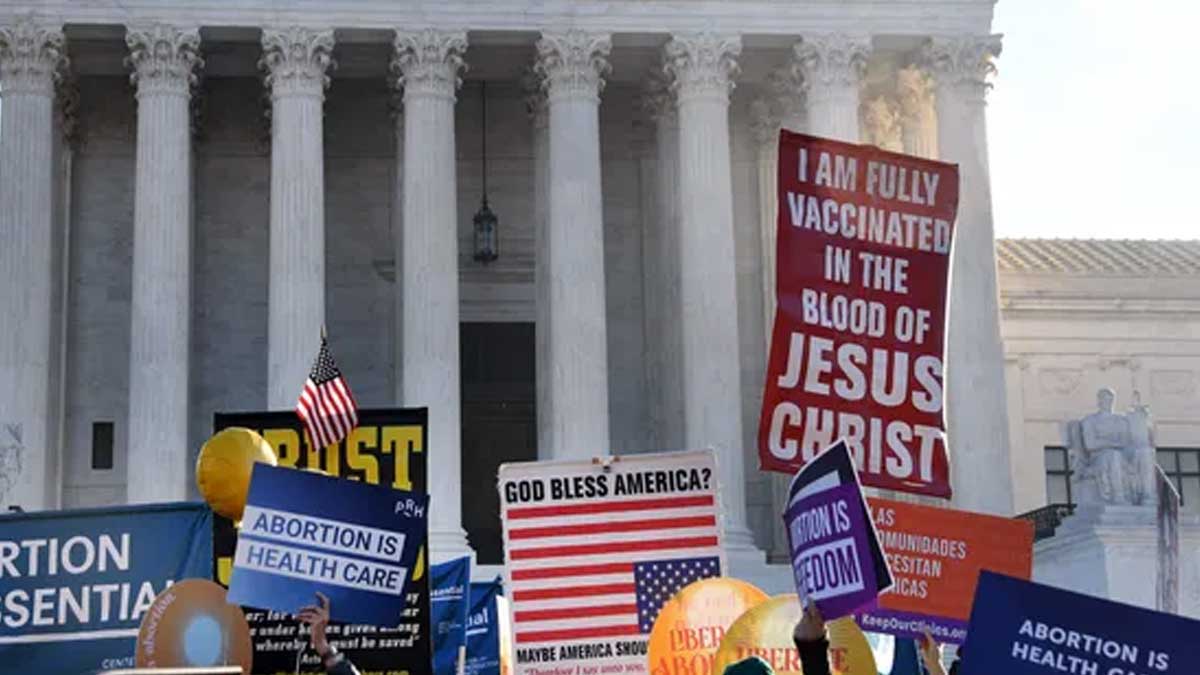- Home
- Billionaires
- Investing Newsletters
- 193CC 1000
- Article Layout 2
- Article Layout 3
- Article Layout 4
- Article Layout 5
- Article Layout 6
- Article Layout 7
- Article Layout 8
- Article Layout 9
- Article Layout 10
- Article Layout 11
- Article Layout 12
- Article Layout 13
- Article Layout 14
- Article Sidebar
- Post Format
- pages
- Archive Layouts
- Post Gallery
- Post Video Background
- Post Review
- Sponsored Post
- Leadership
- Business
- Money
- Small Business
- Innovation
- Shop
Recent Posts
Supreme Court and Biden’s Social Media Policy

The Supreme Court has decided not to intervene in a contentious case involving GOP-led states attempting to block the Biden administration’s collaboration with social media companies. In a decisive 6-3 ruling, the Court determined that the states lacked standing to challenge the government’s initiatives, which they alleged pressured platforms into censoring content deemed unfavorable to the administration. Justice Amy Coney Barrett, writing for the majority, emphasized that the states did not demonstrate sufficient personal harm nor establish a direct causation between government actions and past content restrictions they faced.
The lawsuit, brought by Missouri, Louisiana, and several individuals, accused the Biden administration of engaging in what they termed a “broad pressure campaign” aimed at coercing social media platforms to suppress certain speakers and viewpoints. Specifically, the plaintiffs objected to the administration’s efforts to combat misinformation related to COVID-19 and the 2020 election by urging platforms to remove misleading content.
Barrett’s opinion highlighted that while the government may influence platform moderation decisions, the evidence did not support claims of direct governmental censorship. She underscored that social media companies retained independent discretion in content moderation, often acting on their own incentives and judgments.
In dissent, Justices Samuel Alito, Clarence Thomas, and Neil Gorsuch criticized the majority’s decision, characterizing the case as pivotal for free speech rights. They argued that the Biden administration’s actions constituted unconstitutional overreach, asserting that governmental pressure on social media platforms could suppress conservative voices and infringe upon First Amendment protections.
The Supreme Court’s ruling remands the case to lower courts rather than dismissing it outright, leaving open the possibility for continued litigation or further judicial review. The decision maintains the status quo, allowing the Biden administration to continue its interactions with social media platforms regarding content moderation policies.
The case, Murthy v. Missouri, is part of a broader debate over governmental influence on private platforms, often referred to as “jawboning.” This term describes informal efforts by governments to persuade or pressure platforms into altering their content moderation practices. The outcome underscores the complexities of balancing free speech concerns with governmental efforts to combat misinformation in digital spaces.
This ruling comes amidst ongoing scrutiny over alleged bias against conservatives on social media platforms, a controversy amplified by claims from right-wing figures, including former President Donald Trump, that their voices are unfairly silenced. As similar cases navigate through the legal system, the implications for digital free speech and governmental regulation of online content remain pivotal issues for future court decisions.
Recent Posts
Categories
- 193cc Digital Assets2
- 5G1
- Aerospace & Defense46
- AI37
- Arts3
- Banking & Insurance11
- Big Data3
- Billionaires477
- Boats & Planes1
- Business328
- Careers13
- Cars & Bikes76
- CEO Network1
- CFO Network17
- CHRO Network1
- CIO Network1
- Cloud10
- CMO Network18
- Commercial Real Estate7
- Consultant1
- Consumer Tech180
- CxO1
- Cybersecurity68
- Dining1
- Diversity, Equity & Inclusion4
- Education7
- Energy8
- Enterprise Tech29
- Events11
- Fintech1
- Food & Drink2
- Franchises1
- Freelance1
- Future Of Work2
- Games141
- GIG1
- Healthcare78
- Hollywood & Entertainment186
- Houses1
- Innovation42
- Investing2
- Investing Newsletters4
- Leadership65
- Lifestyle11
- Manufacturing1
- Markets20
- Media193
- Mobile phone1
- Money13
- Personal Finance2
- Policy567
- Real Estate1
- Research6
- Retail1
- Retirement1
- Small Business1
- SportsMoney33
- Style & Beauty1
- Success Income1
- Taxes2
- Travel10
- Uncategorized8
- Vices1
- Watches & Jewelry2
- world's billionaires446
Related Articles
Trump Moves $4B Stake in Truth Social Parent, Stock Drops 6%
Donald Trump recently transferred his 57% stake in Trump Media & Technology...
By 193cc Agency CouncilDecember 20, 2024House Rejects Trump-Backed Funding Bill, Shutdown Looms
The U.S. House of Representatives rejected a new government funding bill on...
By 193cc Agency CouncilDecember 20, 2024Trump Named Time’s Person of the Year for Second Time
On Thursday, Time magazine honored Donald Trump as its “Person of the...
By 193cc Agency CouncilDecember 12, 2024Meta Donates $1 Million to Trump’s Inaugural Fund
Meta, the parent company of Facebook and Instagram, has confirmed a $1...
By 193cc Agency CouncilDecember 12, 2024















Leave a comment